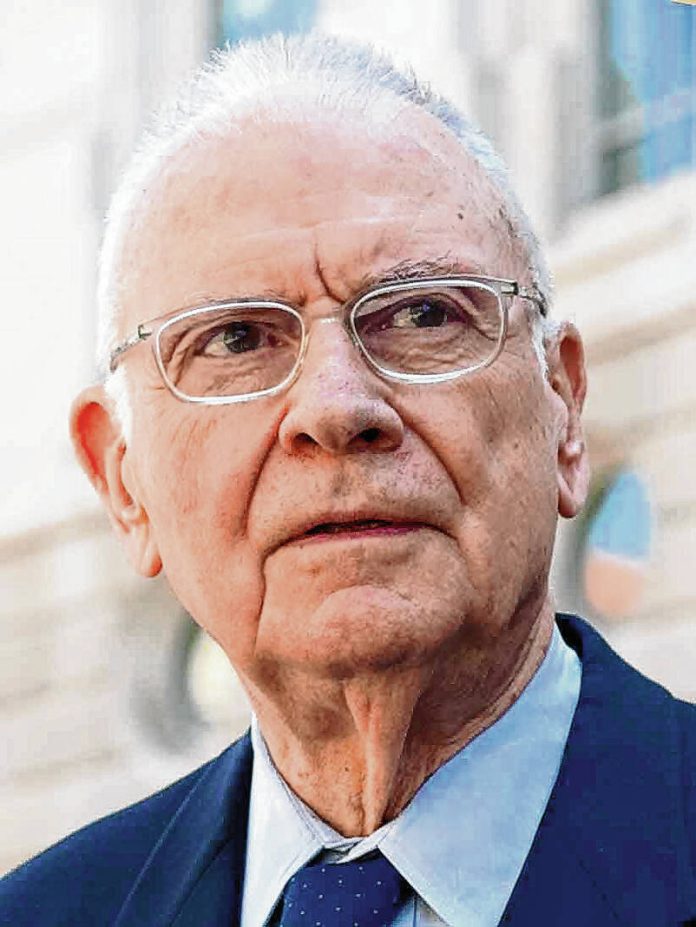The collapse last month of the Francis Scott Key Bridge in Baltimore is a vivid reminder of the crucial role that infrastructure plays in our 21st century economy. It’s also an opportunity to reflect on the importance of government in maintaining our roads, bridges and ports.
The 1.6-mile-long bridge, a fixture of the Baltimore skyline, collapsed in an instant when a giant container ship lost power and struck one of its columns. Tragically, six bridge workers lost their lives. The toll could have been much worse, but bridge traffic was stopped in time.
But the damage was considerable, and its effects will be widespread. The Port of Baltimore shut down, putting the jobs of thousands of dock workers on hold. Commuters and others who relied on the bridge will have to find alternative routes. The impact on the city and region is large and immediate.
The effects will also ripple through the economy and affect us in ways we can’t entirely predict. The Port of Baltimore is one of the 20 largest U.S. ports for the volume and value of its shipping, and it’s one of the biggest on the East Coast. In 2023, it handled 52.3 million tons of foreign cargo worth almost $81 million, according to Maryland data. It supports more than 15,000 jobs.
The port plays an outsized role in certain industries. It’s No. 1 for shipping cars and light trucks, and it ranks near the top for coal and soybeans. Distributors will have to reroute their traffic through other ports, possibly resulting in delays and higher costs for consumers.
Just a few years ago, it was rare to hear news reports about the supply chain. That changed with the COVID-19 pandemic, when it became hard to purchase face masks, cleaning and disinfecting supplies, medical equipment and even toilet paper. Firms shut down or reduced production, and shipping became more difficult and expensive. The network of businesses and people getting products to market couldn’t keep up. As COVID vaccines became widely available and the economy recovered, shortages of semiconductors and other essentials disrupted trade.
These issues highlighted the importance of infrastructure, and the government stepped up when Congress passed the Infrastructure Investment and Jobs Act in November 2021, making approximately $1 trillion available over time for improvements. It was one of President Joe Biden’s rare initiatives to receive bipartisan support. Rolling out massive spending legislation in a way that’s fair and transparent is like turning a battleship, however. A Brookings Institution analysis found the infrastructure bill was just hitting its stride two years after it passed.
The Baltimore bridge collapse is a reminder that we not only need to build infrastructure, we also need to maintain and protect it. A series of rare circumstances apparently caused the container ship to strike the bridge, but it will be important to understand what went wrong and to prevent similar incidents.
Meanwhile, it will take a lot of work and resources to repair the container ship, remove the wreckage from the Patapsco River, and reopen the port, all while helping support affected workers. The Biden administration has promised support, and Maryland requested and received an initial $60 million.
It goes to show how, when disaster strikes, Americans turn to government. We criticize and complain about government, often with justification. But when we get into a crunch — when we need to rebuild a bridge or reopen a port — we rely on government to get the job done.
And the importance of infrastructure to America’s economy is almost immeasurable. The quality of our roads, bridges, ports, rail lines, airports and utility systems is intricately tied to our security and prosperity.
Regardless of party or political orientation, we should agree on that.
Lee Hamilton is a senior adviser for the Indiana University Center on Representative Government; a distinguished scholar at the IU Hamilton Lugar School of Global and International Studies; and a professor of practice at the IU O’Neill School of Public and Environmental Affairs. He was a member of the U.S. House of Representatives for 34 years. Send comments to [email protected].




